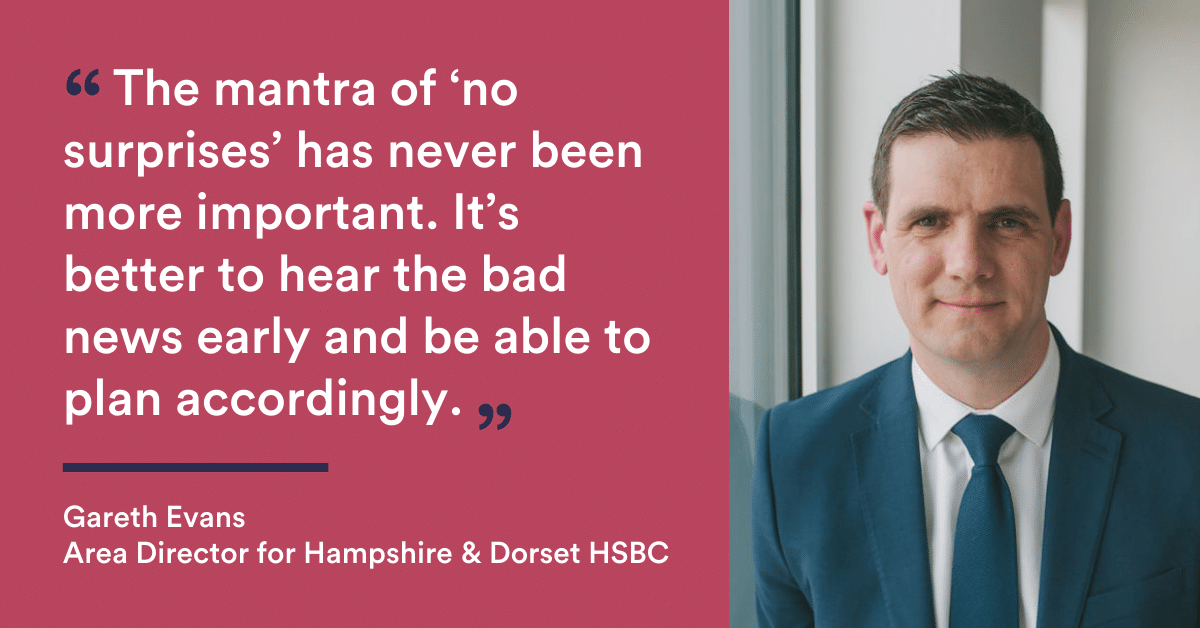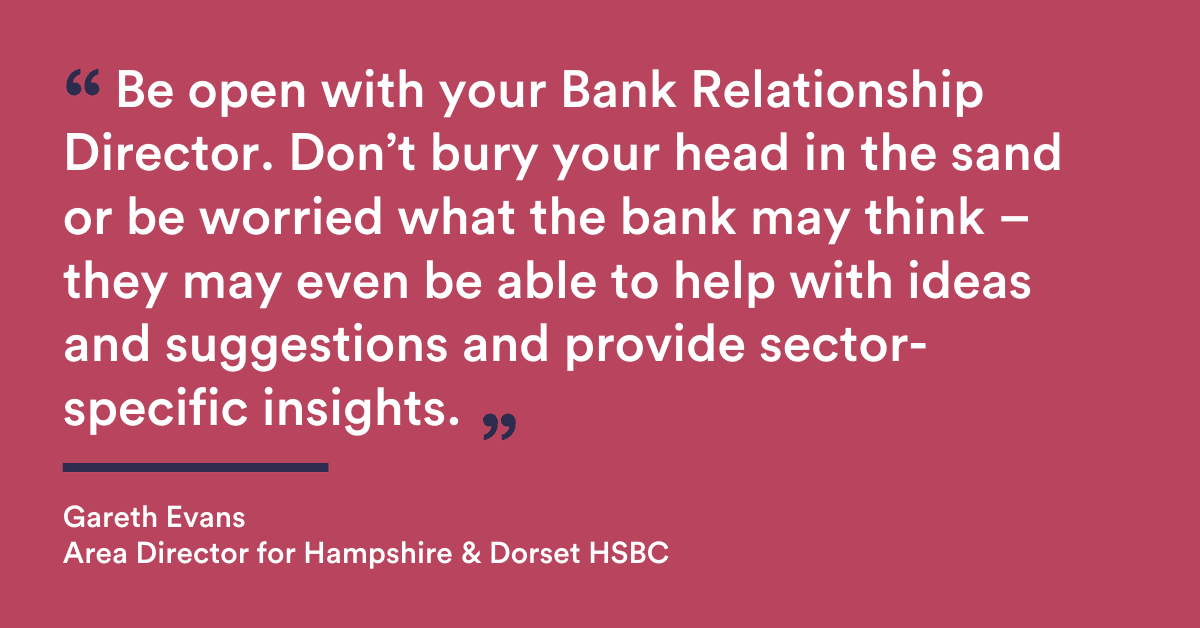What Makes a Top FD: The Banking Perspective
In this series of articles, we speak to local business leaders and financial experts to discover the essential qualities and attributes needed to make it as a top Financial Director (FD). For this second instalment we spoke to Gareth Evans, Area Director for Hampshire & Dorset at HSBC to get the banking perspective on what makes a top FD.
Gareth has worked in the banking sector for almost twenty years, and during that time he has worked alongside many finance directors, building relationships with leaders of businesses of all sizes. Over his career he has gained valuable insight into the desirable qualities of a top Finance Director, an understanding of what ‘good’ looks like and the pitfalls that inexperienced Finance Directors may fall into.
Building relationships and sharing strategy
In business, relationships are always key; whether it’s with employees, contractors or other businesses, and a strong leader is excellent at building rapport on all levels. For Gareth this relationship building is an essential quality, helping the bank and business work in tandem: “The best FDs/CFOs are those that proactively look to build the relationship with the bank and maintain an open and consultative dialogue. They value this business relationship and look to work in partnership with the bank.”
The relationship between a bank and an FD is a two-way partnership and should be collaborative even from the early stages. This enables the FD to gain additional support and insights from the bank: “Early engagement is key – by sharing ideas and strategy with the bank, what they are trying to achieve – will allow us to plan together in a collaborative manner.”
We’ve discussed before about the importance for an FD to have a broad understanding of the business and strategy, but for Gareth, being able to demonstrate this by providing detailed and – most importantly relevant – information to your bank is critical. “It’s important to look forward as well as prepare historical performance data” says Gareth. “By forward, I mean ‘immediate’ (eg 13 week cash flow) and ‘longer term’ for the life of the banking facility.”

Communicating during a crisis
COVID-19 has taught FDs many lessons; there is a lot business leaders can learn from the challenges of running a business during a pandemic. It is no surprise that strong communication from an FD is an essential requisite for a bank. Open and honest communication is one of the golden rules of crisis communication and it’s been a reoccurring theme during the pandemic. Gareth says: “The need for more regular dialogue has been essential, the mantra of ‘no surprises’ has never been more important. It’s better to hear the bad news early and be able to plan accordingly.”
The better FDs have emerged during this crisis when they have proven strong in the production and communication of scenario planning and communication of what the ‘new normal’ may look like.
When it comes to scenario planning, Gareth has seen top FDs sharing readily with the bank, presenting a best and worst case and everything in between. “This has really helped the bank to understand the business performance and given them confidence that the leadership team and that the FD really understands what’s going on in the business and its market.”
Communication of ‘what is the new normal?’ for their business has also been essential: “Articulation of this is important and builds trust in the relationship. The reality is 2019 may no longer be the best benchmark in respective markets” says Gareth.
Having a dynamic business model has also been vital during the pandemic: “As market conditions have been so variable and fast-paced, a dynamic business model that is easily manipulated to reflect real time changes has proved crucially important.”
Of course, all of this comes with experience says Gareth: “On the whole, the more experienced FDs, the ones that have worked through the Financial Crisis have handled this pandemic challenge much better.”
Gaining experience as an FD
In addition to the challenges posed by the pandemic, there are several areas that offer stumbling blocks for less experienced FDs. In Gareth’s eyes, there are two main pitfalls facing a new FD.
The first is not fully understanding the previous relationship between the bank and their company. One of the first tasks for an FD should be finding out and understanding the basis of this relationship and how they have worked together in the past. “If the basis for the relationship is not ascertained, it can result in a less productive and slower relationship to develop” says Gareth.
The second pitfall comes back to that early engagement once again. “Be open with your Bank Relationship Director,” advises Gareth. “Don’t bury your head in the sand or be worried what the bank may think – they may even be able to help with ideas and suggestions and provide sector-specific insights.”

Evolution of the FD role
The business landscape is constantly evolving and changing, and FDs will be responsible for helping to steer the business forward through these changes. How does Gareth see the role of the FD evolving over the next five years?
For Gareth, two main areas come to mind; digitalisation and sustainability. As technology continues to evolve FDs will need to embrace and be adept at supporting the continued digitalisation of the business and the finance function.
“This includes the reporting of real time data, with increased availability and sophistication of AI and various tools allowing not only stronger analysis but also better predictive insights into future performance.”
Sustainability and green initiatives will also be an increasing area of focus in the future for a business and consequently the FD. Gareth says: “A good FD will need to think about sustainability in terms of recurring revenues and planning for continued growth in challenging times, as well as sustainability from an environmental viewpoint and focusing on the business’s supply chain and its people.”
Career advice for young finance professionals
To conclude, we asked Gareth what one piece of advice he would offer a young finance professional with FD aspirations?
His answer: Network, network, network! Gareth says: “Meet as many business people and professional advisors as possible, attend as many events as you can (when restrictions allow!).”
It all comes back to relationship building again: “Make connections across competitors, suppliers, customers and advisors; this will not only provide insight and shared experiences but will also enable the development of a trusted and hugely beneficial business network for the future.”
Looking for your next role? Speak to our Executive team to find out how we can support you in furthering your career.

